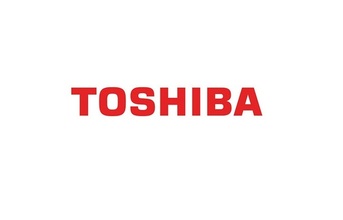
Toshiba recognizes that the future of automotive industry is driven by CASE: Connectivity, Autonomous, Shared and Electrification.
Unmatched pace and appetite for economic development has put India at the centre stage of urbanization. This rapid urbanization however, also stresses upon the transport infrastructure leading to congestion and pollution. Reducing tailpipe emissions from urban transportation is critical to address the increasing pollution and public transport system to lead this transformation is the key. Political will translated into government policies is driving the social change and awareness, leading to development of a coherent ecosystem where automotive manufacturers, infrastructure and component suppliers, personal and commercial end-users will play a vital role.
The uptake of Electric Vehicles (EV) in India is set to increase in momentum as the Indian government puts impetus through its Faster Adoption and Manufacturing of (Hybrid &) Electric Vehicles (FAME) schemes that encourage, and in some segments mandates the adoption of electric vehicles (EV), with a goal of reaching 30 percent EV penetration by 2030.
The FAME India scheme promotes manufacturing of electric and hybrid vehicle technology and aims to ensure its sustainable growth. Coupled with a highly skilled and experienced labor force that encourages domestic sourcing of components and parts, the country is set to be an attractive and competitive production hub for low-emission vehicles, giving a fillip to the government's Make-in-India initiatives. With countries in Africa also developing eco-systems for promoting EV consumption, it presents a grand opportunity companies in India to Export-from-India.
Technological advances in materials and energy management will further alter the transportation landscape. Advances in battery technology have led to higher energy densities, faster charging and reduced battery degradation from charging, which have reduced the ownership costs and improved the performance and efficiency of electric vehicles.

Toshiba has long focused on research and development of rechargeable batteries. Its SCiB™ lithium-ion rechargeable battery uses lithium titanium oxide (LTO) in the anode, and offers advantages that include high safety feature, a long-life cycle and rapid charging, all demonstrated by a wide range of applications in passenger vehicles, trains, boats, industrial equipment and more since 2008. The company's R&D for a next-generation lithium-ion battery with a new anode material, titanium niobium oxide, is making progress. Work so far has confirmed that the oxide is characterized by high-energy density and rapid recharging capability, essential for automotive applications.
Toshiba is also increasing investments and building strategic alliances to meet market needs. A new SCiB™ production facility is being constructed in Yokohama in Japan, to reinforce output from the current Kashiwazaki facility. In addition, the establishment of a plant in India, a joint venture with Suzuki Motor Corporation and Denso Corporation, continues to make progress. New Energy and Industrial Technology Development Organization (NEDO), Japan, has entrusted Toshiba and few other companies with a demonstrative operation of Super Quick Charge electric bus system where Toshiba's SCiB™, long-life lithium-ion rechargeable battery, plays a core role. The project aim is a social implementation of smarter urban transportation system with less emission. It is evident that active promotion and adoption of EV from various stakeholders in the ecosystem can fuel growth.
Toshiba recognizes that the future of automotive industry is driven by CASE: Connectivity, Autonomous, Shared and Electrification. The company is harnessing its knowledge and expertise to deliver technologies and services for both vehicles and their operating environment, highly connected infrastructure systems for traffic control, user navigation that employs power devices, and sensors to support the use of artificial intelligence on the road. At the same time, governments, corporations and consumers need to see the importance of electrification of vehicles as not only the evolution of personal mobility, but also an advance that mitigates climate change.
For more info, please visit:
https://www.toshiba-india.com/Foranewday/index.html.



























